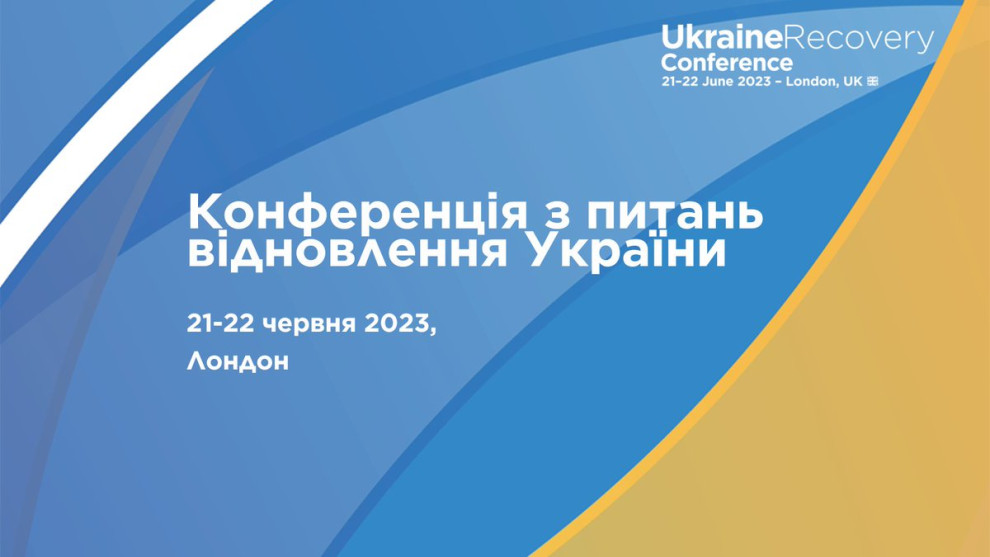The United Kingdom hosts the 2023 Ukraine Recovery Conference on Wednesday and Thursday, with the EBRD – Ukraine’s largest institutional investor – bringing its deep knowledge of the country to bear on discussions about what reconstruction could look like and how best to plan and finance it.
This London conference on the future, organised jointly by the UK and Ukraine, takes place at the same time as Ukraine’s launch of a counteroffensive to retake Russian-occupied territory.
The country is also dealing with the effects of damage two weeks ago to the Nova Kakhovka dam in Kherson region. This has flooded low-lying areas on both sides of the Dnipro river and forced the evacuation of thousands of people.
Delegates gathered in London, however, will focus more on the cost and modalities of rebuilding the country once hostilities subside. According to the World Bank’s latest needs assessment, Russia’s war on Ukraine caused US$ 135 billion of damage in its first year and reconstruction over 10 years could cost US$ 411 billion.
Last year’s Ukraine Recovery Conference in Lugano laid the foundations for the reconstruction process. This year’s London conference is looking for a broader mobilisation of public and private sectors to meet the scale of Ukraine’s stabilisation and recovery needs.
Ukraine, now a candidate to the EU, has committed to build back better, pursuing an active reform stance despite the war.
The EBRD, which has a relationship with Ukraine dating back more than three decades, working both on projects and on support for the Ukrainian authorities’ reforms, has already significantly increased its support there since the Russian invasion last February, committing to invest €3 billion in 2022-23. It stands ready to back reconstruction with further funding and know-how, and in May secured the permission of its Board of Governors to work on a potential capital increase by year-end to extend maximum support for Ukraine.
EBRD President Odile Renaud-Basso will be participating in a plenary session entitled Framework for Lasting Recovery at the main conference, whose themes are Unity, Diversity, Delivery and whose main topics will be attracting the private sector to help finance reconstruction, rebuilding infrastructure and improving reform and governance.
“The EBRD’s aim from the start has been a very practical one: to support the resilience of Ukraine’s real economy in the here and now, working primarily on energy security, vital infrastructure, food security, trade and support for the private sector. Together with a continuation of the reform agenda, reconstruction will be an intensification of this, building on our support for these key sectors of the economy,” said Ms Renaud-Basso.
Ms Renaud-Basso will be joined at the URC by the EBRD’s Vice President, Policy and Partnerships, Mark Bowman; Managing Director, Eastern Europe and the Caucasus, Matteo Patrone; Managing Director, Impact and Partnerships, Ines Rocha; Managing Director, Policy Strategy Delivery, Christoph Denk; and Mark Magaletsky and Irina Kravchenko, Deputy Heads of EBRD in Ukraine.
At or on the margins of the conference, the EBRD expects to sign two transactions, one in agribusiness under its Food Security Pillar, and the other in the financial institutions sector under the Resilience of the Private Sector pillar.
The Bank also expects to sign three Memoranda of Understanding (MoUs) with Ukrainian Prime Minister Denys Shmyhal on further work to boost Ukraine’s energy security, one covering hydropower in the wake of Nova Kakhovka, one electricity and one gas.
On 21 June, Ms Renaud-Basso will sign on behalf of the EBRD a Memorandum of Understanding (MOU) with 17 development finance institutions on collaboration when making co-investments in Ukraine, mainly in the private sector. This builds on an initial commitment in May by the EBRD and the development finance institutions from the G7 group of advanced economies to establish the EBRD-led EBRD-G7 DFI-EDFI Ukraine Investment Platform.
Finally, the EBRD will sign a statement of intent on relaunching the insurance market in Ukraine.
The Bank will also host several side events at its London HQ, starting with a gender event on 20 June, titled A Vision for Gender Responsive Recovery in Ukraine. Partners include UN Women, the UK Foreign, Commonwealth and Development Office (FCDO), the National Democratic Institute (NDI), the Ukrainian Women’s Fund, the Women’s Ukraine Congress and the government of Ukraine.
The event will explore the challenges stemming from displacement, conscription, disability and psychological harm – as well as the intersectionality with gender – related to wartime conditions.
On 22 June, the EBRD will host an event on “Investments in Energy for Green Recovery”, moderated by Ukrainian energy thinktank DiXi Group.
The Ukrainian government has announced a "build back better" approach to energy sector recovery, with an emphasis on renewable energy sources and energy-efficient technologies. Before the war, the country, an exporter of electricity, was already developing renewable energy alongside its nuclear energy resources. Ukraine’s electricity sector has undergone severe bombardment by Russian forces through the winter.
Discussion will focus on the prospects of investors coming to Ukraine's energy sector, and which companies are ready to invest, as well as on the steps needed to improve the business climate.
On 23 June, the EBRD will co-host a final morning event, Financial Integrity and Transparency, along with the German Marshall Fund of the United States, USAID Support to Anti-Corruption Champion Institutions, RISE Ukraine Coalition, Transparency International Ukraine and Transparency International UK.
This event will be supported by the EBRD’s Ukraine Stabilisation and Sustainable Growth Multi-Donor Account, grouping Austria, Denmark, Finland, France, Germany, Italy, Japan, the Netherlands, Norway, Poland, Sweden, Switzerland, the United Kingdom, the United States and the European Union.
It will bring together officials from governments and donor agencies, as well as civil society, to publicly explain all the work underway to ensure that Ukraine’s recovery and reconstruction process is transparent, accountable, digital, and efficient. It will also explore questions related to management of state property and corporate governance of state-owned enterprises (SOEs).






